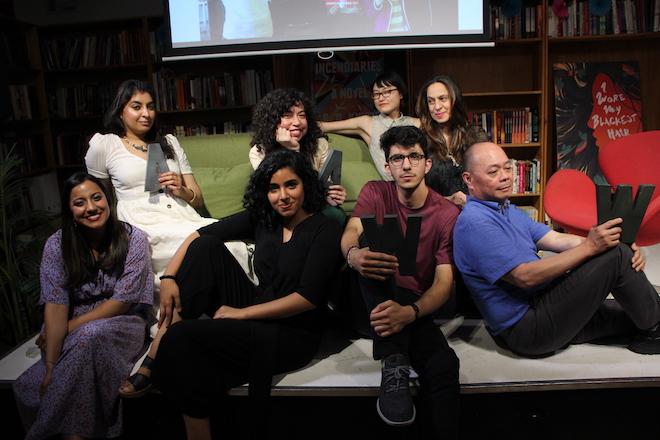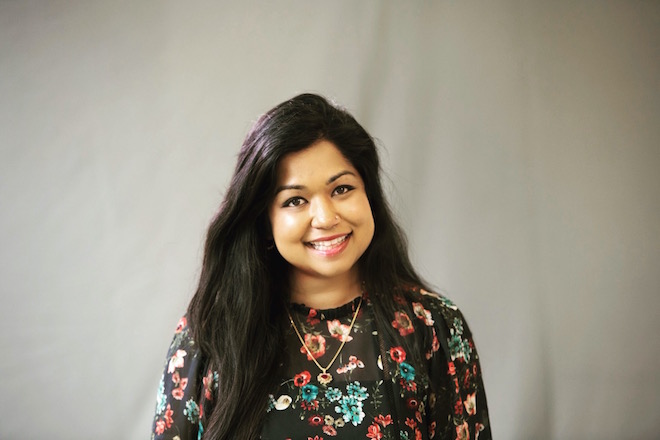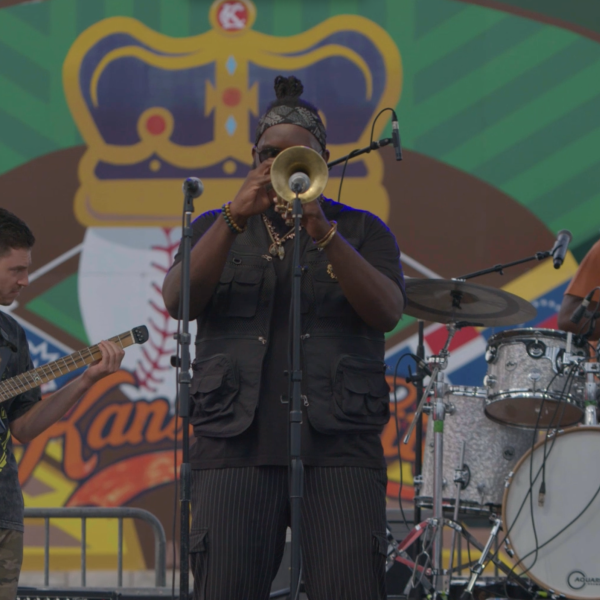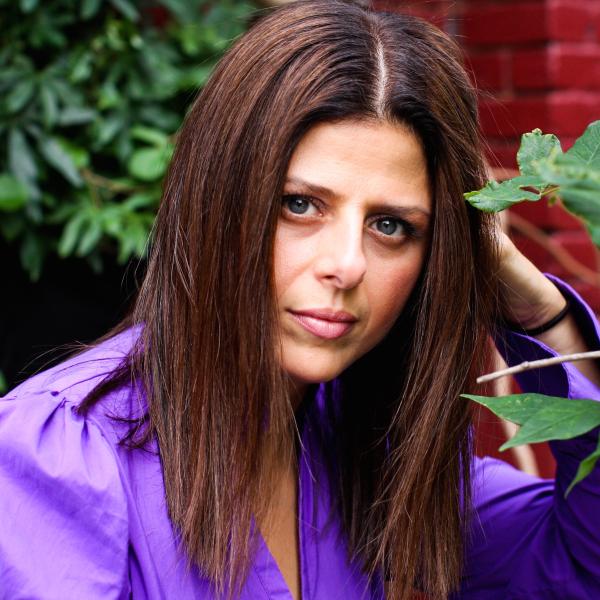Conversations that Matter: A Grant Spotlight on the Asian American Writers’ Workshop

Founded in 1991, the Asian American Writers’ Workshop provides a literary home for writers of the Asian diaspora. With support from the National Endowment for the Arts, the range of Workshop programs include two fellowship programs, in-school arts education for New York City high school students, a bi-monthly reading series that is also web-streamed, and Margins, a literary magazine. What these diverse activities have in common, in addition to their literary underpinnings, is the desire to foster community—both locally and far beyond the organization’s geographic boundaries. Jafreen M. Uddin has recently become the Workshop’s executive director, but she emphasized when we spoke with her that she’s been “a fan and community member of the Workshop for years.” She described the Workshop as a “a real sanctuary for writers but also people who attend events with writers that look like them…and who are speaking to their experience. It's really powerful to be in that room in that public space surrounded by people who feel like your own.” In the interview below, Uddin shares how the Workshop has turned to digital programming in light of stay at home orders, how the Arts Endowment helps support its work, and why, in the face of the global pandemic, it's even more important to lean in to the organization’s mission to lift up voices from the margins.
NEA: As an arts organization, what does the Asian American Writers’ Workshop make possible?
JAFREEN M. UDDIN: We are dedicated to creating and publishing, developing and disseminating literature by Asian, Asian-American, and Asian diasporic writers. We are an alternative literary art space that works at the intersection of migration, race, and social justice. We consider ourselves a community of activists who use our artistry to really advocate for and center voices and ideas that are usually otherwise on the margins.
NEA: You have just become the Workshop’s executive director and to say the least, we’re living in interesting times. What plans do you have, and how are they informed by the current moment?
UDDIN: The Workshop [has] always worked to amplify those voices that aren't heard as often, and the pandemic really reiterates the need to empower these communities who, in the context of the pandemic, have been hit the hardest and before the pandemic were the communities we weren't really hearing from. In terms of the recent protests [against police brutality], it's reiterated our need to be a part of impactful coalition building. It's not enough to stand on the sidelines and be an ally. What can the Workshop be doing that embodies powerful, impactful coalition building that makes a difference? But then also, we are a literary organization, and literature can be a real balm for people during times of crisis. That's a huge part of what we're going to continue to do, provide programming and opportunities for writers and readers to find the solace and the comfort that they need from the arts.
NEA: How do you continue to foster community in a digital space when in-person gatherings, such as literary readings, are just not possible?
UDDIN: Our staff has been working remotely since the beginning of March, which is around the same time we cancelled live programming. Keeping our community safe is one of our highest priorities. We've pivoted digitally in a really interesting way in that we've created different channels and opportunities for people to engage [with Workshop programming]. We try to have one to two virtual readings a month. All of our events are live-streamed on our Facebook page so we're able to remain in touch with our community that way. We started a new series called AAWW at Home… for our magazine and it includes short interviews with writers in their home talking about what they're doing, what they're reading, how they are finding comfort and solace during this time. It also gives writers an opportunity to spotlight an organization or a cause that is dear to them. We've used this interview series as one important way of spotlighting organizations that are working [on the ground] with communities in the middle of this crisis.
We also have a podcast [that’s created from a] combination of original podcasts and audio from past events, and it's a great way take events and conversations that have happened in our live space and bring them to a community beyond New York City. For us, it's most important to have different opportunities for people to plug in because we recognize that everybody is going through this pandemic differently. Some people might not have the time to keep up with everything that we're doing and that's okay. For us it's most important to continue to have these conversations and continue to make them accessible to the public and just be there for people to plug in and engage with us in a way that feels right to them.

NEA: Because of so much programming going online because of stay at home orders, there is this whole new audience that is out there from around the world that have been able to access things not just because they're digital but also because they're free or low-cost. Yet at the same time, organizations need to have funding to continue their programming. How does that inform how you move forward so the gates don't come up again for audiences due to distance or cost?
UDDIN: All of our events are open to the public for free and all of our events have always been live-streamed on our Facebook page for as long as live-streaming has been an option. I think it's a really important way to build community and reach audiences far beyond our space in Chelsea. The pandemic has changed a lot of things for us, but it hasn't really changed that. If anything, the pandemic has reinforced what we've always believed and what we've always tried to do with our public programming.
NEA: The Workshop just received a National Endowment for the Art Works grant. What does that funding make possible for you?
UDDIN: We're able to provide our events for free because of support from the Arts Endowment. That support is so critical in helping us provide this content and build this community in a way that is truly accessible for communities not just in New York City but well beyond.
NEA: The pandemic is I think highlighting conversations that had already started to happen around equity, access, injustice, anti-racism, etc. What do you see as the role of an arts organization as the community grapples with these questions?
UDDIN: I think it's time for the arts community to really critically think about who have been the gatekeepers and how has that impacted opportunities for writers who come from underrepresented communities. It requires a lot of introspection for not any one institution but the field at large. I think it's a chance for arts organizations to also think about how to support and truly show up for work that's happening on the ground. Are we doing fundraisers? Are we spotlighting work by people who are on the frontlines? As arts organizations sometimes [we] are a little bit removed from a lot of that community organizing. What are we doing to be a part of that conversation? How are we thinking about programming in a way that's not tokenizing, in a way that's authentically diverse and representative of our communities? Each organization is obviously going to respond and react in a way that it best for them. But I do think it's important to do something. Not responding or not being a part of this conversation is not an option at this point.
NEA: What question are you tired of people asking about the Workshop or about arts organizations in general?
UDDIN: It’s not just me being tired; I think the community is probably tired of needing to justify their art and their artistry. So much of the time writers and artists from communities of color need to provide context and justify their art in a way that white writers and artists don't. Being a writer is not easy in general, and to add on these extra layers of burdens I think makes it all the harder. These categories are created for marginalized communities that just don't exist for white artists and writers, making an already competitive landscape even more difficult.
NEA: Any final words before we wrap up?
UDDIN: It's such a challenging time, but my hope for the Workshop and for the work that we do is that in whatever way possible we can impart a little bit of hope. Because I do think we need that more than ever. If art and writing can fill that role then as stewards of art and writing my wish for the Workshop is that we're able to do that in some way during this incredibly unprecedented and challenging time.




